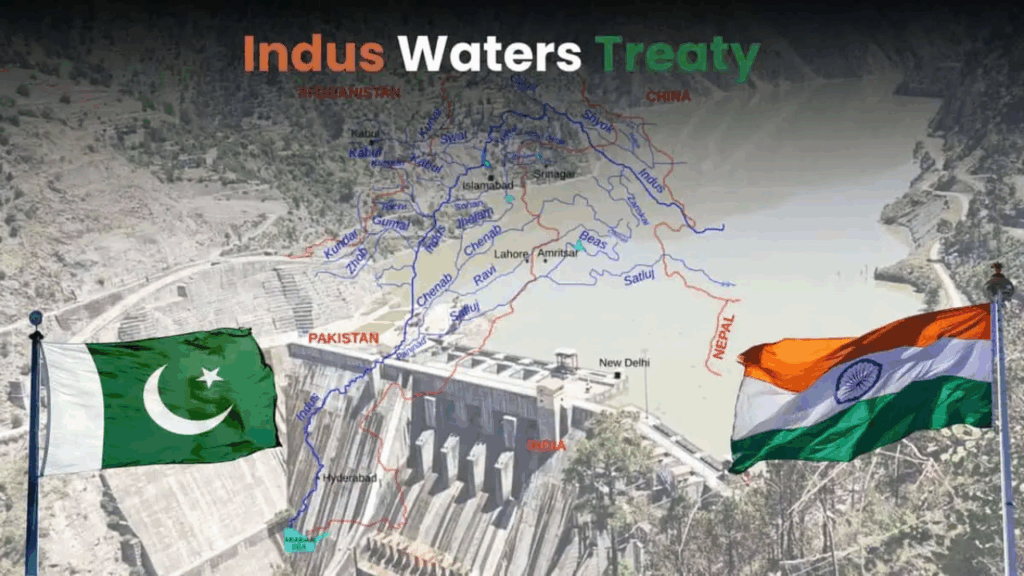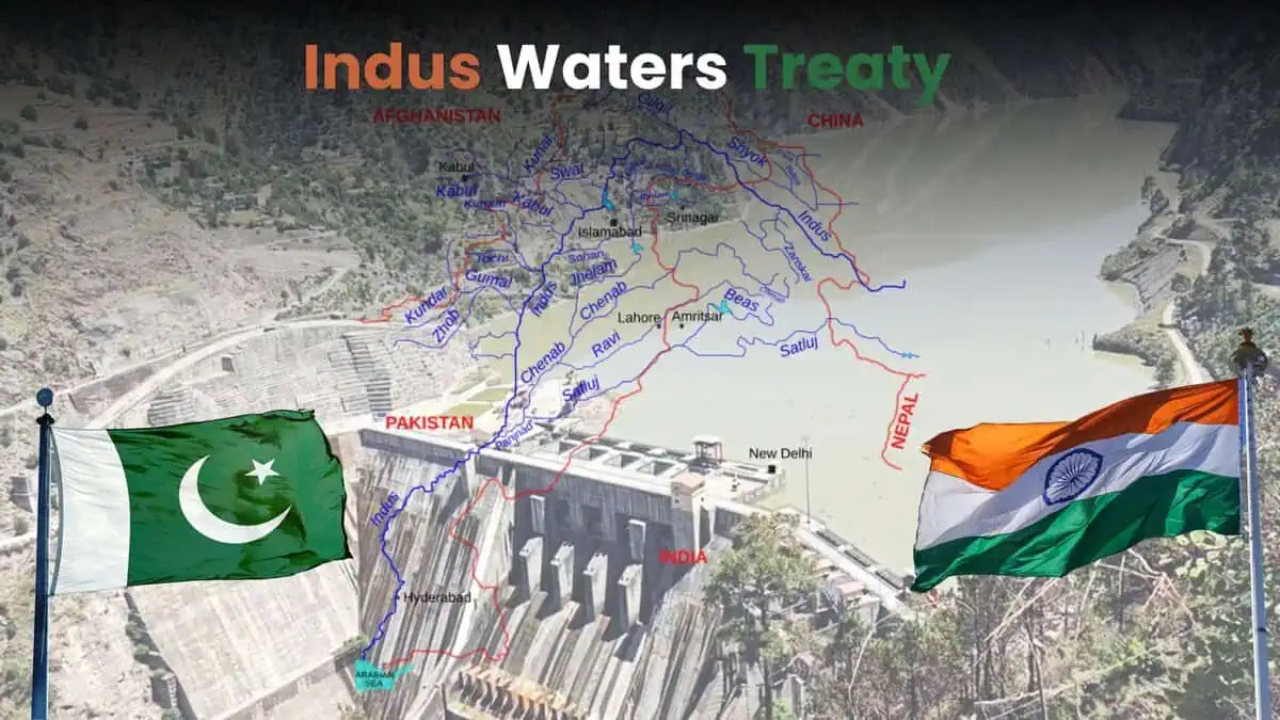
Water is one of India’s most precious natural resources, essential for agriculture, energy, drinking purposes, and industry. However, its uneven distribution across states has led to recurring disputes. With over 90% of India’s river basins shared between two or more states, interstate river disputes have become a defining feature of Indian federalism. The resolution of such conflicts is shaped by water law, constitutional provisions, judicial interpretations, and special tribunals.
Constitutional and Legal Framework
India’s water governance rests on a complex constitutional arrangement.
- Constitutional Provisions
- Entry 17, State List: Water supply, irrigation, canals, drainage, and embankments are under state jurisdiction.
- Entry 56, Union List: The Union Parliament can regulate interstate rivers if it is in public interest.
- Article 262: Empowers Parliament to make laws for adjudication of interstate river disputes and bars the jurisdiction of the Supreme Court in such cases.
- Key Legislations
- Interstate River Water Disputes Act, 1956 (IRWD Act): Provides for setting up of tribunals to resolve disputes.
- River Boards Act, 1956: Enables the creation of boards for inter-state river regulation, though rarely used.
- Easements Act, 1882: Recognizes customary water usage rights.
- Environment Protection Act, 1986: Regulates pollution in river systems.
- Judicial Role
Despite Article 262 restricting jurisdiction, the Supreme Court often interprets tribunal awards and addresses constitutional issues, playing an indirect yet important role in river disputes.
Major Interstate River Disputes in India
1. Cauvery River Dispute (Karnataka–Tamil Nadu–Kerala–Puducherry)
- One of the longest and most contentious disputes.
- Revolves around equitable sharing of Cauvery waters.
- The Cauvery Water Disputes Tribunal (1990) and subsequent Supreme Court ruling (2018) allocated shares among states with modifications.
2. Krishna River Dispute (Maharashtra–Karnataka–Andhra Pradesh–Telangana)
- Involves allocation of Krishna basin waters.
- Krishna Water Disputes Tribunal I and II provided separate awards, but disputes continue after Telangana’s formation.
3. Yamuna Water Dispute (Uttarakhand–Haryana–Delhi–Rajasthan–Uttar Pradesh)
- Allocation determined by the 1994 Yamuna Agreement, but challenges persist due to pollution and reduced flows.
4. Godavari River Dispute (Maharashtra–Andhra Pradesh–Telangana–Chhattisgarh–Odisha)
- Settled by the Godavari Tribunal, focusing on balancing irrigation needs with hydropower projects.
5. Mahanadi River Dispute (Chhattisgarh–Odisha)
- Recent conflict over construction of barrages by Chhattisgarh affecting downstream Odisha.
- Currently before the Mahanadi Water Disputes Tribunal (2018).
Key Issues in Interstate River Disputes
- Federal Tensions: States prioritize their own irrigation and power needs over national interests.
- Delayed Tribunals: Tribunals often take decades to deliver awards, leading to prolonged conflict.
- Non-Implementation of Awards: Even after rulings, states resist enforcement.
- Climate Change: Erratic rainfall and reduced river flows intensify disputes.
- Pollution and Overuse: Industrial discharge, sand mining, and urban waste aggravate scarcity.
Role of Judiciary and Tribunals
- The Supreme Court, in the Cauvery case (2018), recognized water as a “national resource” and emphasized equitable sharing.
- Tribunals, such as in Krishna and Godavari disputes, provide a forum for technical examination but face credibility challenges due to delays.
- The Interstate River Water Disputes (Amendment) Bill, 2019 seeks to create a single permanent tribunal with multiple benches to speed up adjudication.
Achievements and Challenges
| Aspect | Achievements | Challenges |
|---|---|---|
| Legal Framework | Clear provisions in Constitution and IRWD Act | Complex procedures, frequent amendments |
| Tribunal System | Specialized technical bodies created | Long delays in delivering judgments |
| Judicial Role | Ensures enforcement and equitable principles applied | Limited jurisdiction under Article 262 |
| Dispute Resolution | Several disputes settled (Godavari, Narmada) | New conflicts emerging (Mahanadi, Mahadayi) |
| Implementation | Some awards successfully enforced | State resistance and political factors |
| Future Outlook | Moves toward single permanent tribunal | Coordination between Centre and states needed |
Sustainable Solutions to River Disputes
- Strengthening the Tribunal Mechanism: Ensure time-bound awards and effective monitoring.
- National Water Framework Law: Establish uniform principles for water allocation, as suggested by the National Water Policy.
- Interstate River Basin Authorities: Encourage joint river management boards with equal participation from states.
- Alternative Dispute Resolution (ADR): Mediation and negotiation can reduce hostility between states.
- Focus on Conservation: Promote rainwater harvesting, watershed development, and pollution control to reduce dependence on shared rivers.
Overview Table
| Issue | Current Position | Suggested Reform |
|---|---|---|
| Constitutional Basis | Article 262, Entries 17 & 56 | Stronger Centre–State cooperation |
| Tribunal Delays | Awards take decades | Permanent tribunal with strict timelines |
| Judicial Involvement | Limited, yet influential | Greater role in enforcement and compliance |
| State Resistance | Common in Cauvery, Krishna disputes | Binding mechanisms for implementation |
| Climate Change Impact | Reduced flows increase conflicts | Adaptive water-sharing agreements |
| Pollution of Rivers | Affects equitable usage | Joint river basin pollution control measures |
Conclusion
Water law in India reflects the country’s struggle to balance federal autonomy with national interest. While the IRWD Act and tribunal system provide a framework, delays and enforcement issues weaken their effectiveness. With rising population, climate change, and increasing demand, interstate river disputes are likely to grow. Strengthening tribunals, promoting cooperative federalism, and implementing sustainable water management practices are the only pathways toward long-term peace and water security.
FAQs
Q1. What law governs interstate river disputes in India?
The Interstate River Water Disputes Act, 1956, governs the adjudication of such disputes.
Q2. Why do interstate river disputes take so long to resolve?
Tribunals face procedural delays, political resistance, and challenges in enforcing awards.
Q3. What is the future of water law in India?
A permanent tribunal, a national water framework law, and cooperative river basin management are key reforms for the future.

